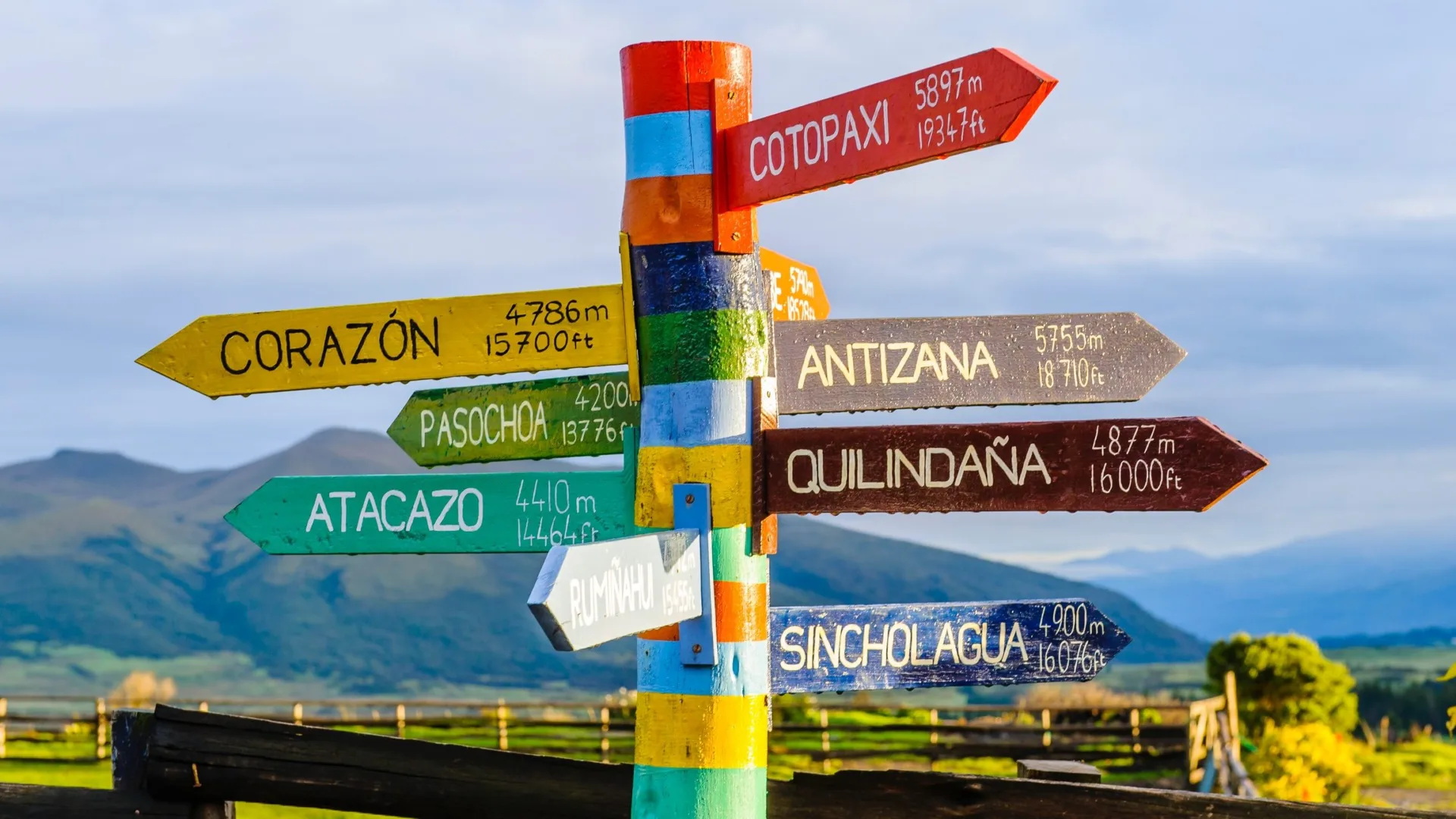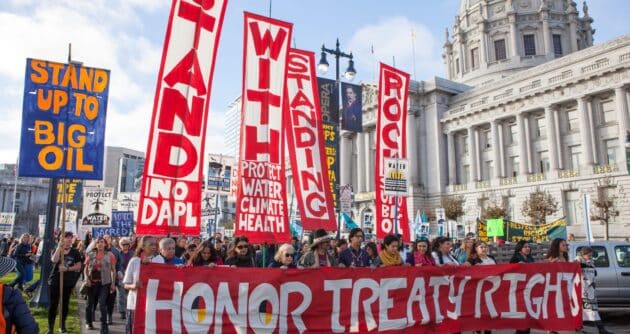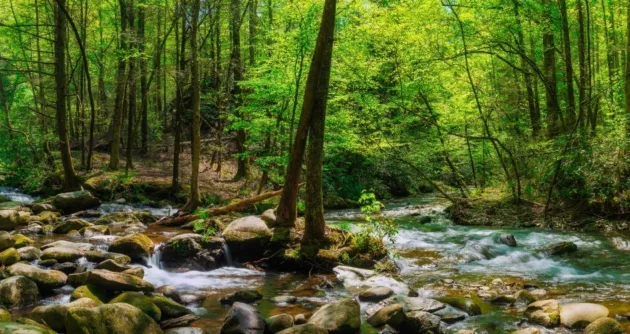Drawing on a provision in Ecuador’s popularly-adopted constitution of 2008, the nation’s Constitutional Court (Ecuador’s highest court) halted mining concessions and permits issued in the Los Cedros Protected Forest ecosystem. The mining would violate the Rights of Nature, the court ruled in the landmark decision.
In the United States, whether it be about oil/gas drilling, corporate agriculture or pesticides, people in the communities that face harms caused by these industries can rarely even get into court to make a case and present evidence, let alone ecosystems themselves. We live under a system that presumes environmental regulations actually protect the environment. The court in Ecuador actually overruled existing environmental regulatory law, which had permitted mining in Los Cedros.
What will it take to advance the Rights of Nature in the United States in such a way that similarly challenges the existing environmental regulation paradigm, which has thus far only regulated the rate of destruction?
Comparing the Los Cedros Forest to Ohio, USA
In 2012, my own community of Broadview Heights, Ohio passed a law after residents petitioned for a direct democracy initiative to prohibit any new oil/gas drilling in the municipality. The law they drafted and presented to voters included residents’ right to a healthy environment and Rights of Nature within the community. Voters passed the law by 67%, denying consent to any additional drilling. (Ninety wells had already been drilled in our 13-square-mile community).
Two drilling corporations that had obtained state permits to drill more oil/gas wells, using the process of “fracking,” then sued the municipality of Broadview Heights. The people and the environment could not even get into the courtroom as intervenors in the case and were forced to sit back and watch local elected officials and lawyers half-heartedly defend the law, a law which the officials themselves did not pass and never supported. Being a direct democracy initiative, it was voters who wrote and passed the law.
The drilling corporations argued their “rights” were being violated by the law and that the state had passed a law in 2004 preempting any local community from passing laws regarding the oil/gas industry. The judge agreed with them. The corporate “persons” had obtained all the necessary government permits and so their activities were legal in the eyes of the court—and there was nothing the community could do about it. No scientific studies on the harms of fracking and drilling in the community were ever considered or presented as evidence. All that mattered to the court was that the drilling companies’ actions were deemed legal by the state. The rights of the natural environment and the people were never considered, let alone defended, because they were “preempted” by state law.
This is why the recognition of the Rights of Nature in the Ecuadorian Constitution was so crucial in helping protect the people and forest of Los Cedros. The plaintiffs who brought the case to enforce the Rights of Nature were able to get into the courtroom and present evidence, something the people of Broadview Heights never got the chance to do.
What about Pennsylvania, USA?
When we compare what is happening in Grant Township, Pennsylvania to Broadview Heights, Ohio and Los Cedros, Ecuador, we can see how having the recognition language for the rights of a healthy environment in a state or federal constitution can help facilitate leveling the playing field at least a little bit.
Unlike in Broadview Heights, the Grant Township case is progressing to trial. This gives Grant Township the opportunity to collect information through the court “discovery” process and to depose witnesses. This is farther than Broadview Heights and Toledo, Ohio (Lake Erie Bill of Rights) and most other communities across the United States have gotten. Typically, the courts have looked for procedural ways to overturn Rights of Nature laws, or they take seriously corporate lawyers’ claims that Rights of Nature laws violate the civil rights of corporate “persons.”
Part of the reason the Grant Township case has progressed in the way it has is thanks to a 1971 “Environmental Rights” amendment to the Constitution of Pennsylvania that secures rights “to clean air, pure water, and to the preservation of the natural, scenic, historic and esthetic values of the environment. Pennsylvania’s public natural resources,” the amendment continues, “are the common property of all the people, including generations yet to come. As trustee of these resources, the Commonwealth shall conserve and maintain them for the benefit of all the people.”
Of course, this language did not stop fracking, corporate agriculture, industrial pollution and other harms from wreaking havoc in the state over the past 50 years.
But, it did help residents in Grant Township to get a foot in the door. The trial is scheduled for 2022. No one knows how the court will rule.
What do these cases mean for building a movement?
The case surrounding the Lake Erie Bill of Rights, in Toledo, Ohio, garnered the attention of people around the world. Even though a federal judge made the decision to overturn the law passed by the people recognizing Lake Erie’s right to exist, flourish and thrive, it did help expand peoples’ political imagination. Thousands, maybe even hundreds of thousands of people were exposed to a new way of thinking about nature and the relationship between people and a Great Lake. This new way of thinking about nature helps push a cultural shift.
Chicken or the egg?
So this brings me to the “which comes first?” question.
Does the law change first and shift the culture? Or does the cultural shift happen first and the law follows?
After a decade of doing this work as a Community Rights and Rights of Nature organizer, I would have to say that they happen together. Victories on both fronts are both important for the movement. If laws are supposed to reflect a society’s values and morals, that would suggest to me that the cultural shift will need to happen first. If we truly value clean air, water and a livable future for our species, our current laws and system do not reflect these values. However, if we value profits and power and define “progress” as creating more and more stuff while destroying more and more of the Earth, then our laws are reflecting those values.
So a movement for systemic change will require a cultural shift in the values of the society. And manifestations of cultural shift often happen at the local level first. That’s why we fight for local power.
In 2006, Tamaqua Borough, a small rural town in Southeastern Pennsylvania was the very first municipality to pass a law in the western, settler colonial legal structure recognizing Rights of Nature.
Following decades of Indigenous movement building and resistance in Ecuador, a newly empowered peoples constitutional assembly learned of Tamaqua as it was helping draft a constitution. This contributed to the Rights of Nature language that eventually made its way into the new constitution.
The movement then began to snowball. In New Zealand, Bolivia, Colombia, India and others. In Pittsburgh, Barnstead New Hampshire, Spokane Washington, Toledo Ohio, Lafayette Colorado, Mora County, New Mexico and more U.S. cities. Indigenious nations have also taken the lead on this front on the continent.
Are Rights of Nature the end goal?
We have to be realistic about what Rights of Nature as a legal construct can achieve. And in the larger movement context, we have to be careful not to simply recreate the mistakes of the past. If Nature will be able to get into court and “studies, data and experts” will be relied upon to protect ecosystems, we have to realize that corporations with many more financial resources than local community members and local governments, may be able to manipulate the system just as they have in the past. Those with more money can hire more expert witnesses, donate to universities and pay private firms to do more computer modeling and put out more research to “prove” their side of the argument.
The Rights of Nature movement, particularly in the United States, as it is evolving, will need to be aware of and address these issues in order to really protect ecosystems and people. Just as oppressed classes gained rights in the legal system, only to see them eroded over time by the wealthy and powerful, ecosystem rights will face similar challenges. Maybe we need a whole new system and way to organize our communities? Rabble rousers and creative thinkers will need to remain vigilant.



